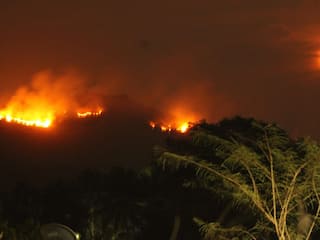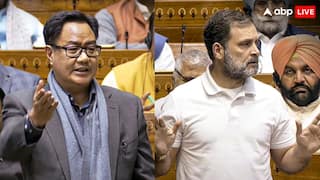Nagaland, Meghalaya CMs Demand Repeal Of AFSPA After Civilian Killings. What Is The Law?
The statements come two days after an Army unit in Nagaland mistook a group of villagers for insurgents and opened fire, killing 13 civilians in the security operation.

New Delhi: Chief Ministers of Nagaland and Meghalaya on Monday demanded the removal of the Armed Forces (Special Powers) Act, 1958 from the states amid the growing chorus for withdrawal of the law following the civilian killings in Nagaland.
Attending the funeral of civilians killed in the firing incident at Oting village in Nagaland’s Mon district, CM Neiphiu Rio on Monday said that AFSPA has tarnished the image of the country.
“I have spoken to Union Home Minister, he is taking the matter very seriously. We have given financial assistance to affected families. We are asking the Central government to remove AFSPA from Nagaland. This law has tarnished the image of our country,” the Chief Minister said, as quoted by news agency ANI.
He also wrote a tweet emphasising on the demand to repeal AFSPA.
Meghalaya CM Conrad K Sangma also supported that call as he tweeted: “AFSPA should be repealed”. Notably, CM Sangma’s National People’s Party (NPP) is an ally of the Bharatiya Janata Party (BJP).
The state Congress also supported the call, urging CM Sangma to convene a meeting for consultation over the issue.
“We must go all out to demand immediate repeal of this draconian oppression on our people. Kindly convene a consultation at the earliest,” Congress MLA Ampareen Lyngdoh tweeted in reply to Sangma.
The statements come two days after an Army unit in Nagaland mistook a group of villagers for insurgents and opened fire, killing 13 civilians in the security operation at an India-Myanmar border district of Mon in the Oting village, ANI reported.
Irked villagers torched vehicles of security forces and some people were reportedly shot when security forces opened fire to control the irate mob, reported news agency PTI.
The Army, in a statement, expressed deep regret over the “unfortunate loss of lives” in a counter-insurgency that went awry and said that the incident is being investigated at the highest level.
Lok Sabha members also condemned the killing of civilians in Nagaland, calling for the repeal of the AFSPA.
Demanding an impartial judicial inquiry into the incident, senior Congress leader Manish Tewari urged the government not to invoke the immunity under the AFSPA against those who are found guilty, PTI reported.
AIMIM chief Asaduddin Owaisi wanted Centre to tell Lok Sabha when it would repeal AFSPA in the state.
Congress party’s Pradyut Bordoloi demanded an oversight mechanism on the implementation of the AFSPA in Nagaland while demanding that the perpetrators of the crime be brought to book.
ALSO READ | Amit Shah On Nagaland Civilian Killings: Case Of Mistaken Identity, SIT To Submit Probe Report In A Month
What Is AFSPA?
The Armed Forces (Special Powers) Act, 1958 confers special powers on the armed forces in areas deemed as disturbed. It gives security forces the power to search, arrest and open fire to maintain public order in four of India’s seven northeastern states.
The AFSPA is in force in Assam, Nagaland, Manipur (excluding Imphal Municipal Council area), Arunachal Pradesh’s Changlang, Longding, Tirap districts and areas falling within the of eight police stations at the Assam border.
The powers extended to an officer of the armed forces under AFSPA include:
- Fire upon or use other kinds of force even if it causes death, against a person who is acting against law or order in the disturbed area for the maintenance of public order, after giving such due warning.
- Security personnel can use force and even open fire after due warning.
- To arrest without a warrant anyone for cognisable offences or under suspicion of having done so. The officer(s) may use force if needed for the arrest.
- To enter and search any premise to make such arrests. The action can also be taken recover any person who is wrongfully restrained or any arms, ammunition or explosive substances and seize.
- Importantly, army officers have legal immunity for their actions. Anyone acting under that law is exempted from prosecution, suit or any other legal proceeding against their actions. The government’s judgment on why an area is found to be disturbed is also not subject to judicial review. There is protection of persons acting in good faith under this act from prosecution.
Political leaders, civil society groups, and rights activists of the Northeast region have been demanding the withdrawal of the “draconian” law for years, alleging excesses by security forces with impunity under the cover of the Act.
(With Inputs From Agencies)






































